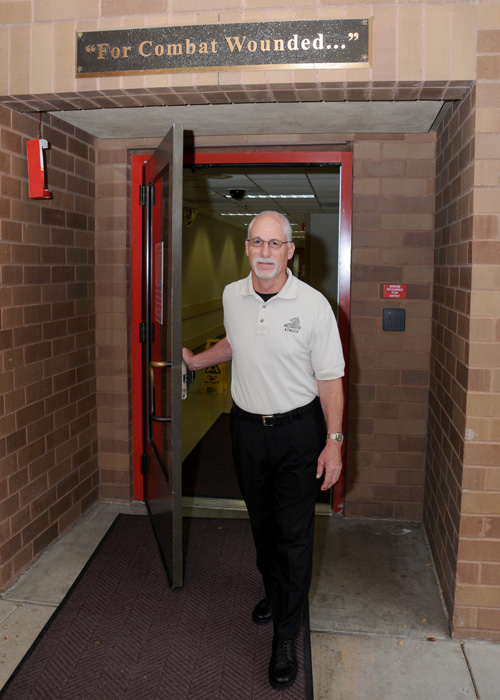USAISR Researcher Selected as Senior Scientist

A physiologist and researcher at the U.S. Army Institute of Surgical Research who has served as the tactical combat casualty care research task area program manager for 13 years has been selected as the new USAISR Combat Casualty Care Research Senior Scientist. Victor A. Convertino, Ph.D., will continue his research efforts in his current area of human hemorrhage physiology while serving as an advisor to the USAISR commander and the U.S. Army Medical Research and Materiel Command for combat casualty care.
"I am humbled and honored to have been selected as the Combat Casualty Care Senior Scientist," said Convertino. "This selection is not about me. It's about the awesome responsibility of being in a position that requires the upmost attention and energies to move combat casualty care research to a new level."
Convertino's current research has been focused on developing the Compensatory Reserve Index which is a new technology that uses information obtained from a standard pulse oximeter to gauge whether a patient requires resuscitation or immediate medical attention.
"This tool has real potential to limit and control shock and hypotension on the battlefield," said USAISR Commander, Col. Michael D. Wirt.
Convertino began his work in physiology long before earning his Ph.D. from the University of California, Davis in 1981. His career in government service began after completing a fellowship at Stanford and an academic appointment to the University of Arizona.
His first job as a physiologist was at the Kennedy Space Center where he was a senior researcher with NASA. From there he moved to San Antonio to lead the Physiology Research Branch at the U.S. Air Force Armstrong Lab. In 1998, Convertino brought his expertise to the USAISR where he led his task area for more than 13 years.
"My career has spanned over four decades and taken me to diverse positions," Convertino said. "The pathway in federal government research positioned me well for my current role as a research physiologist at the USAISR. With the most challenging job of 'optimizing combat casualty care,' our research focused on the ultimate goal of saving the lives of our warfighters on the battlefield through the development of novel technologies designed to enhance the capabilities of our combat medics in the pre-hospital setting."
"In this role he has directed research efforts to develop advanced therapeutic and triage capabilities in the pre-hospital setting, as well as led human and clinical research designed to provide evidence-based solutions for improved survival of combat casualties," said Wirt.
Convertino added that he's looking forward to his new role as Senior Scientist where he will be able to promote the integration of research efforts across USAISR task areas. He hopes to accomplish this by being directly involved in "forming and executing effective scientific research strategies as well as building multi-disciplinary teams that leverage other government, industry and academic resources to assure the highest possibility of research mission success."
 An official website of the United States government
An official website of the United States government
 ) or https:// means you've safely connected to the .mil website. Share sensitive information only on official, secure websites.
) or https:// means you've safely connected to the .mil website. Share sensitive information only on official, secure websites.


